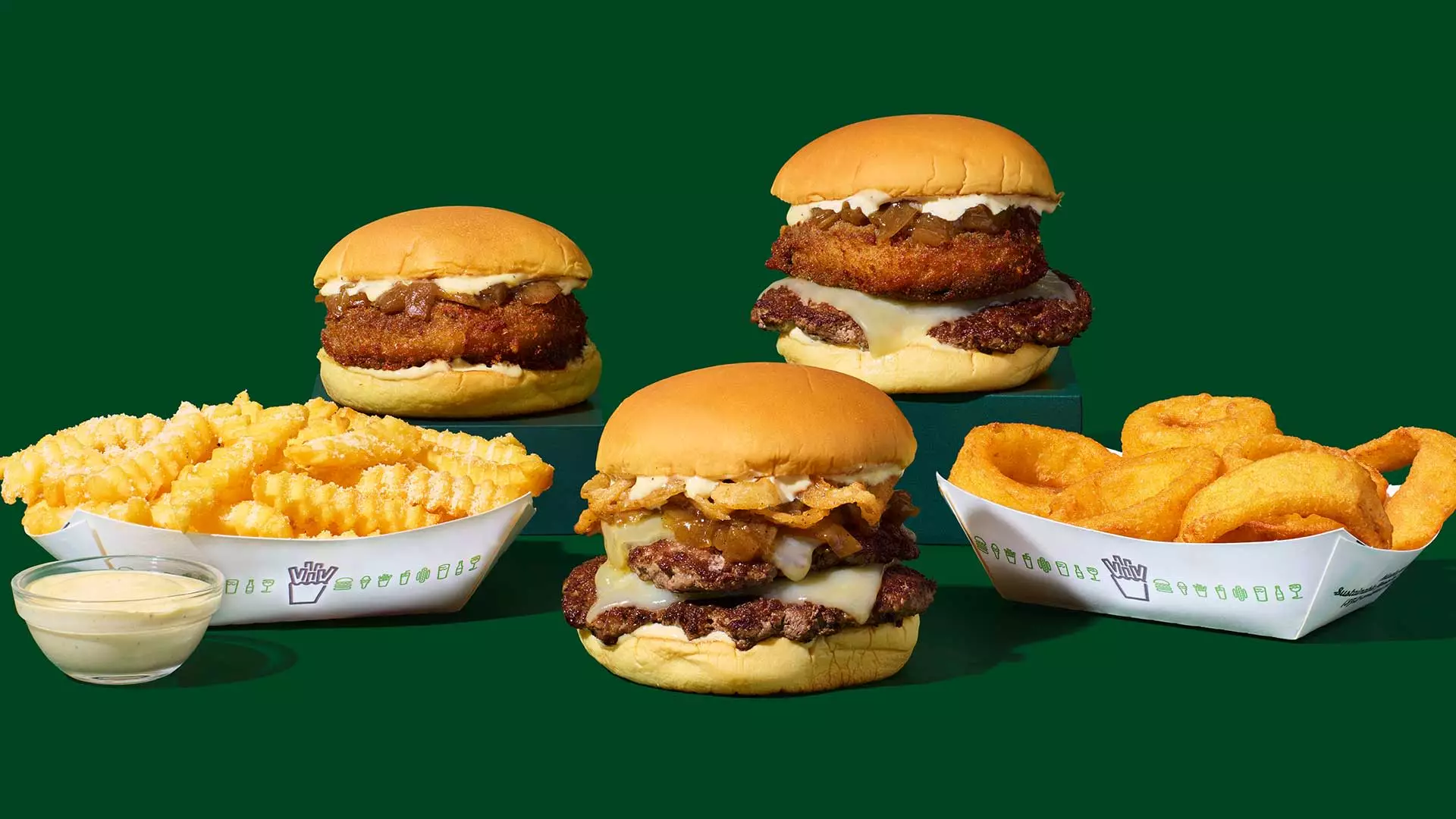In an era saturated with fast food brands attempting to elevate their menus to “gourmet” heights, Shake Shack’s recent foray into premium-priced innovation feels more like a desperate marketing ploy than a genuine promise of value. The company’s assertion that it offers “fine dining” at a fraction of the price conveniently ignores the underlying economic reality: consumers are increasingly burdened, and the desire for quality doesn’t necessarily translate into willingness to pay twice as much for a burger. Their recent launch of a French Onion Soup Burger priced at $10.99, alongside their high-end Dubai Shake, exemplifies a troubling trend—brands leveraging perceived luxury to command higher prices without delivering corresponding value or authenticity.
What genuine consumer benefit emerges from these menu updates? Beyond the superficial association with fine dining, people are still consuming fast food primarily for convenience and affordability. When Shake Shack claims to democratize high-end culinary experiences, they gloss over the fact that many of their customers—especially amid rising inflation—are reconsidering how much premium they are willing to pay. The shift towards “premium” here appears driven more by marketing strategy and less by customer demand, risking alienation of core customers who may see these offerings as unnecessary luxury rather than genuine value.
The Price Paradox and the Reality of Market Expectations
While CEO Rob Lynch touts these elevated offerings as a way for consumers to “self-select” into higher pay tiers, it ultimately creates confusion and possibly resentment. Consumers are savvy, increasingly skeptical of the so-called “democratization of fine dining,” especially when such claims clash with their financial realities. The marketing spin suggests these high-priced items are accessible alternatives to $25 gourmet burgers elsewhere, but this framing ignores the question: Why should consumers choose to spend more at Shake Shack when they can get comparable (or better) quality elsewhere, perhaps even more affordably?
Furthermore, equating a $10.99 burger with “fine dining” is a stretch—an attempt to redefine luxury in terms of marketing rather than experience. As inflation squeezes household budgets, especially for younger consumers who seek premium experiences without the exorbitant price tags, Shake Shack’s strategy risks falling flat. It’s a gamble rooted more in maintaining a luxury image than addressing genuine consumer needs or values, which could backfire if the quality doesn’t match expectations or if affordability remains a concern.
The Future of Fast Food: Sustainability or Flash in the Pan?
Despite their ambitions, Shake Shack’s recent financial reports reveal a fragile balancing act. While revenue growth remains positive, the sluggish same-store sales growth highlights a broader industry challenge—consumers are becoming more selective, scrutinizing their spending, and weighing the worth of “premium” options amid economic uncertainty. The fact that some locations in major markets like New York show signs of weakness underscores the limits of their appeal.
Moreover, the company’s strategy leans heavily on temporary, high-priced items rather than sustainable quality improvements or core menu enhancements. This approach might deliver short-term buzz, but it risks eroding trust in the brand’s authenticity. If they are truly committed to “democratizing fine dining,” they must confront the simple truth: consumers want value and meaningful quality, not gimmicky menu releases that capitalize on fleeting trends. Fast food should be about accessible excellence, not artificially inflated prices dressed up as luxury. As long as inflation and economic strain persist, consumers will be cautious about indulgent splurges, making Shake Shack’s premium gambit a risky, perhaps even misguided, venture.

